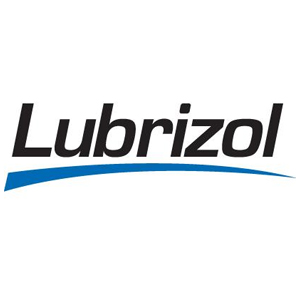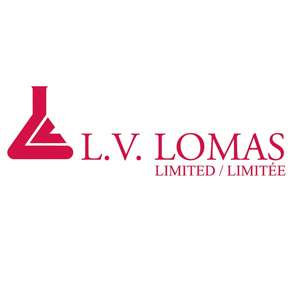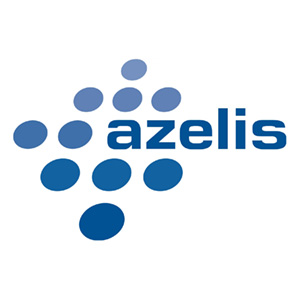
Webinar Notice Nov 9, 2021
Reducing Tribological Losses and Failures – Part 9 Workshop
STLE
TORONTO SECTION
2021
Fall and 2022 Spring Program
Toronto Section Chair’s Welcome
On behalf of STLE Toronto Section, I would like to welcome you to our 2021-2022 program. Starting last year, STLE Toronto held several education webinars on-line and we will continue until we will have a safe environment for our attendees.
Our focus will be “cost savings” and / or “manufacturing cost reduction” based on better lubrication, better practices, and / or automated data gathering and processing. These helpful webinars will educate and empower attendees to contribute more to the company through these tough times.
I welcome you all on this program and hope to see you all there.
Behshad Sabah
Program
Our technical program over the last few years was based on half day in-person workshops featuring 5-6 speakers. This worked well but with the current concerns about the Covid 19, we are adapting. A short survey determined that the most popular was a talk 30-45 minutes long, on one topic, and held mid-morning. We are also going with live video audio webinars which allows our participants to attend from wherever they are working and there is no time lost for travel. Plus, questions can be submitted in advance or during the presentations. As before we are focusing on technologies that can help save your company resources. This can be better as it might help tribological products last longer, save energy, reduce waste, and/or increase productivity. Win, win, win!
This is a FREE webinar and Registration fees are voluntary. We suggest $25.00 which will be used to pay for Student Memberships at local universities
Payment: □ Credit Card □ E-transfer edmilanczak@gmail.com
Please register now by filling the form, phone ,e-mail or mail.
Attn: Ed Milanczak edmilanczak@gmail.com
1361 Clearview Drive
Oakville, Ontario, L6J 6X5
Phone: 416 702-3107
The STLE Toronto Section uses events like this to help spread the word and also to raise funds. These funds are used to support the section activities and to provide donations and assistance to local universities and colleges. No money raised goes to salaries or expenses.
Sep 9 Wayne Mackwood and Andrew Keane, Lanxess re their new urea/CaS grease
Oct 12 Ken Bannister, Engtech Industries Re Asset Management
Nov 9 Matt Hobbs, EPT Re lube oil varnish detection and remediation
Jan 11 Bill Quesnel, Wearcheck Re grease testing
Feb 8 Dr. John K. Duchowski, R&D Filtration, HYDAC Re on-line monitors
Mar 8 Sonia Hevia, Petro-Canada Lubricants Re electric vehicle tribology
Apr 12 Pall Re controlling water contamination or Lubrizol
Titles might change, but topic will be the same or very similar. Suggestions for speakers to fill the gaps would be appreciated.
Why attend: Asset management is key to a company’s performance and hence to their bottom line. In many regards Canada seems to be lagging behind other industrialized countries and one root cause might be a lack of appreciation by managers and technical staff of the importance of effective asset management. Plus, few engineering programs seem to cover it in sufficient detail. Listen in to better assist your companies and your customers
Nov 9th , 2021 , 10 AM to 11 AM, EST
– lubricating Oil Varnish Detection and Remediation – Matthew G. Hobbs, PhD, , EPT
Abstract: Varnish is the end result of unmanaged lubricant breakdown and leads to numerous equipment problems including: filter plugging,
restricted oil flow, poor heat transfer, valve sticking, fail-to-start conditions and costly unit trips.
Varnish has traditionally been defined as an insoluble deposit, however, varnish also exists in an often-overlooked soluble
(dissolved) state. While varnish forms as the result of an irreversible chemical reaction, the conversion between soluble and
insoluble varnish is a physical equilibrium process; importantly, this process is reversible.
Due to the costly nature of varnish-related failures and their prevalence in critical industrial applications, numerous strategies have
been developed to mitigate its effects. Most rely on physical filtration and focus on the removal of varnish in its insoluble state.
Unfortunately, these particle-removal systems have little impact on varnish in its soluble form; once they have physically removed
particulate varnish, soluble varnish persists and continues to form deposits. By contrast, Ion-exchange-based soluble varnish
removal systems provide a chemistry solution for the chemistry problem that is oil breakdown. By doing so, they exploit the soluble insoluble
varnish equilibrium and provide the most effective means of removing varnish in both of its states. With all varnish
removed, the performance and reliability of critical assets can be maximized.
Biography:
Mr. Matthew G. Hobbs, PhD

Matthew is Senior Chemist at EPT Clean Oil, where he manages research, development and the Fluid Technical Center services. As a technical expert, Matthew works with users to provide lubricant contamination solutions in critical industrial applications. Before joining EPT Clean Oil, Matthew obtained his PhD in synthetic chemistry from the University of Calgary and was the General Manager of a National oil analysis laboratory. Matthew is also an active contributor to ASTM, recognized recently with the Award of Appreciation from ASTM’s D02 Committee . This award recognizes the tremendous contributions Matthew has made to the Petroleum Products, Liquid Fuels, and Lubricants Committee. Of note, Matthew was a vital contributor to the updates of ASTM Standards. EPT is a Calgary-based industrial fluid management company. EPT and Clean Oil, an EPT company, are global specialists in providing solutions to lubricant contamination experienced by gas turbines, steam turbines and other industrial processes.
Register & Submit:
Other Events:
Hamilton Section Education Days
When:
Wednesday, November 03, 2021
1:00 PM-4:00 PM
1:00 pm What is Tribology:
2:00 pm Lubrication Oils
3:00 pm Lubricating Greases
Thursday, November 04, 2021
1:00 PM-4:00 Pm
1:00 pm What is Filtration
2:00 pm Lubrication Methods
3:00 pm Lubricant Testing and Reports
Please contact Jacqui Mehlenbacher @Jacqui.Mehlenbacher@fuchs.com to sign up.
SEMINAR THEME
Back to Basics
Course Materials
Visit the Hamilton Section’s
Website at www.stle.org










Ed, why do you want a website?